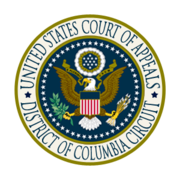
Back Caso Estados Unidos contra Microsoft Spanish Yhdysvallat vastaan Microsoft Finnish United States v. Microsoft Corp. ID Stati Uniti contro Microsoft Corporation Italian United States v. Microsoft Swedish 合众国诉微软案 Chinese
| United States v. Microsoft Corp. | |
|---|---|
 | |
| Court | United States Court of Appeals for the District of Columbia Circuit |
| Full case name | United States of America v. Microsoft Corporation |
| Argued | February 26–27, 2001 |
| Decided | June 28, 2001 |
| Citation | 253 F.3d 34 |
| Case history | |
| Prior history | United States v. Microsoft Corp., 87 F. Supp. 2d 30 (D.D.C. 2000); 97 F. Supp. 2d 59 (D.D.C. 2000), direct appeal denied, pet. cert. denied, 530 U.S. 1301 (2000). |
| Subsequent history | Microsoft Corp. v. United States, 534 U.S. 952 (2001) (pet. cert. denied); 224 F. Supp. 2d 76 (D.D.C. 2002); 231 F. Supp. 2d 144 (D.D.C. 2002) (on remand), aff'd in part and rev'd in part, 373 F.3d 1199 (D.C. Cir. 2004) |
| Holding | |
| Business practices conducted by Microsoft, when tying its Internet browser and operating system, was monopolistic behavior per the Sherman Antitrust Act. | |
| Court membership | |
| Judges sitting | Harry T. Edwards, CJ; Stephen F. Williams, Douglas H. Ginsburg, David B. Sentelle, A. Raymond Randolph, Judith W. Rogers, and David S. Tatel, JJ. |
| Case opinions | |
| Per curiam | |
| Laws applied | |
| Sherman Antitrust Act | |
United States of America v. Microsoft Corporation, 253 F.3d 34 (D.C. Cir. 2001), was a landmark American antitrust law case at the United States Court of Appeals for the District of Columbia Circuit. The U.S. government accused Microsoft of illegally monopolizing the web browser market for Windows, primarily through the legal and technical restrictions it put on the abilities of PC manufacturers (OEMs) and users to uninstall Internet Explorer and use other programs such as Netscape and Java.[1]
At the initial trial, the United States District Court for the District of Columbia ruled that Microsoft's actions constituted unlawful monopolization under Section 2 of the Sherman Antitrust Act of 1890,[2] but the U.S. Court of Appeals for the D.C. Circuit partially overturned that judgment.[1] The two parties later reached a settlement in which Microsoft agreed to modify some of its business practices.[3]